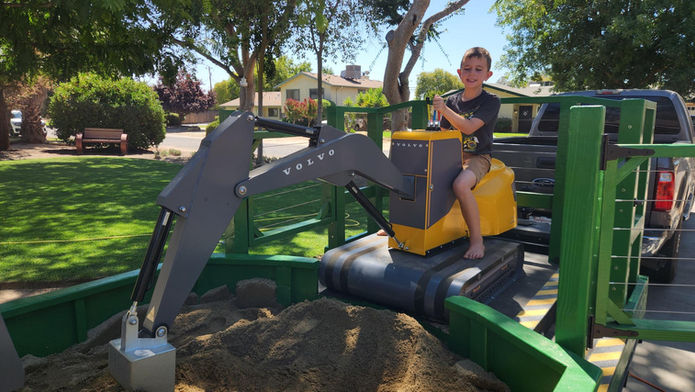
Educational Benefits of Dig Adventures
"Play is the highest form of research."
– Albert Einstein
🚜 STEM Learning Through Play
-
Introduces basic mechanical concepts like levers, motion, and force.
-
Sparks curiosity about machines, construction, and how things work.
-
Provides early exposure to STEM skills in a fun, pressure-free environment.
🧠 Cognitive Development
-
Strengthens problem-solving and critical thinking as kids figure out how to scoop, dump, and move sand.
-
Enhances spatial awareness and planning through real-world action.
🤲 Fine Motor Skills
-
Improves hand-eye coordination and motor control using real joystick-style controls.
-
Builds dexterity and focus through guided, goal-oriented play.
-
💪 Confidence & Independence
-
Kids gain a huge confidence boost as they take control of real (kid-safe) equipment.
-
Encourages independent exploration and achievement with every dig.
-
👥 Social & Emotional Growth
-
Supports turn-taking, teamwork, and communication in shared play zones.
-
Helps kids learn patience and cooperation in a fun, active setting.

In the National Research Council Report (2000), "How People Learn"
researches found that When children physically engage with learning tasks, they are more motivated and stay engaged longer. Motivation leads to deeper exploration and better academic outcomes.
-
Example: Hands-on science activities, like building models or conducting experiments, dramatically increase student participation (Minner, Levy, & Century, 2010).
Vygotsky’s Sociocultural Theory (1978)
Finding: Learning is a social process. Hands-on group activities allow children to collaborate, negotiate, and build social skills like teamwork and communication.
"Children learn as they play. Most importantly, in play, children learn how to learn."
– O. Fred Donaldson
According to Occupational therapy research (Case-Smith, 2005)
Finding: Manipulating tools, blocks, and materials during hands-on activities improves children's fine motor skills, important for writing, daily tasks, and physical development.